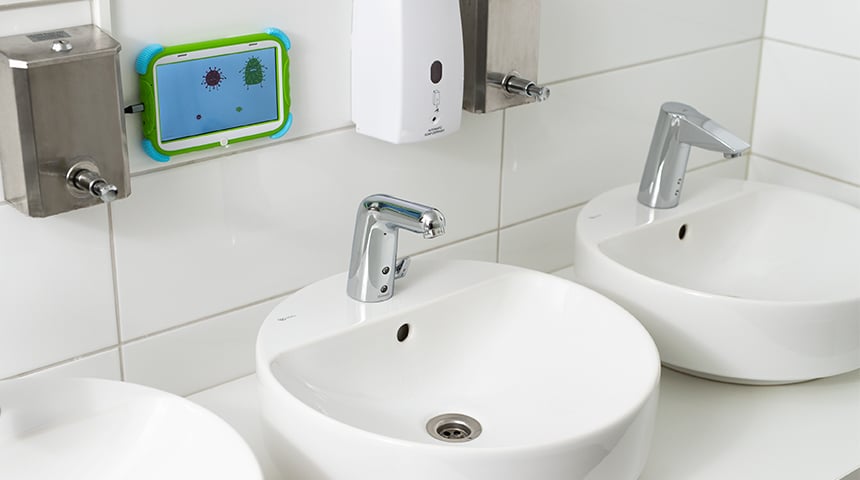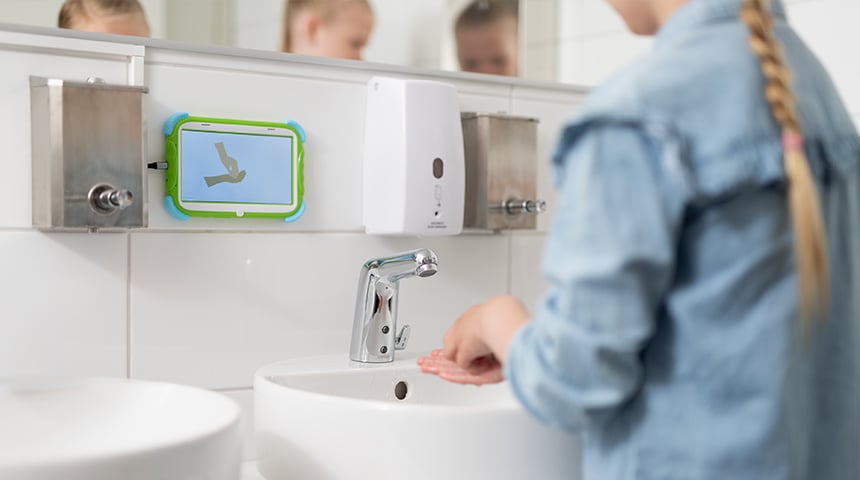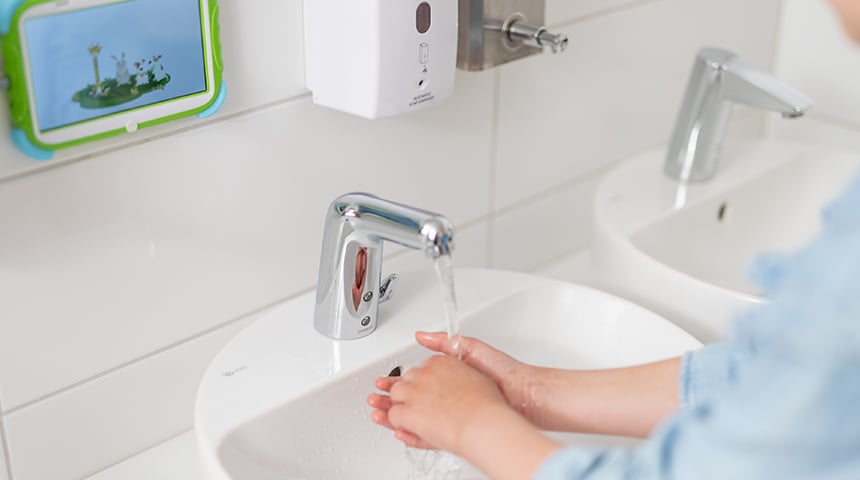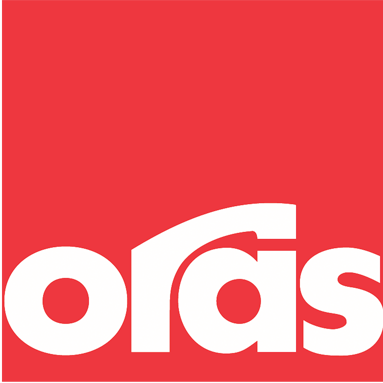Smart and engaging technology can have a true impact on hand hygiene. Pilot projects in several kindergartens have confirmed the success of the digital system, leading to a significant increase in hand washing time and joyful faces at the sink.

Smart and engaging technology can have a true impact on hand hygiene.
As a result of widespread campaigns, most of us have become more aware of infection transmission to help keep ourselves and others around us safe. For children, however, following a proper handwashing routine is not as intuitive.
Up to 80% of the most common diseases are transmitted by touch
Source: Study on hand hygiene by SRH Heidelberg, 2018.
Kindergartens are one of the many places, where teaching good hand hygiene can have a true, long-lasting impact.
Long-lasting behavioural changes that lead to great results
Achieving sustainable behavioural changes requires knowledge-sharing and collaboration. That’s why, together with the University of Bamberg, Oras is testing various pilot studies across Europe to improve our daily hand washing routines through innovative, gamified nudges.
And the results speak for themselves. By making use of engaging gamification elements and integrated digital systems, soaping and washing time could be significantly improved.
From posters to interactive screens with real-time user feedback
In most of today’s public bathrooms, we can find posters, reward charts or playful instructions aiming to make handwashing a part of our daily routines. However, they often have limited impact and quickly fade into the background.
The new digital system by Oras makes use of smart faucets and soap dispensers that are connected to small interactive screens, which can be mounted directly next to the washbasin.
Playful nudges and smart insights that have a true impact – Here’s how it works

The setup measures washing and soaping time and guides children through their handwashing routine via playful animations.
Using real-time technology, known from appliances such as electric toothbrushes, the setup measures washing and soaping time and guides children through their handwashing routine via playful animations. By following the instructions on the screen, children receive a reward animation, which turns handwashing into a fun, engaging game with great overall results.
By measuring and evaluating washing and soaping time, it also provides feedback on single hand washing sessions and collects data to assess overall hygiene levels on a long-term basis.

By following the instructions on the screen, children receive a reward animation, which turns handwashing into a fun, engaging game with great overall results.
The future of bathrooms – in private and public buildings
Running multiple test pilots and research projects across European kindergartens, hospitals and other public institutions, we are expecting to share more insights in the near future.
This opens up a whole new world of opportunities:
- By monitoring usage patterns and collecting vital data, we can start building a universal hand hygiene index that compares the data of multiple projects.
- Building managers or staff can set hygiene targets and compare their performance with others.
- By analysing different reward systems and guidance videos, we can test which ones have the greatest effect on users and develop new insights together with our customers.
- Companies can safeguard the health of their employee base by using the hand hygiene service. Investments in hand hygiene not only reduce sick days and related costs. It also improves the well-being and productivity of personnel by seeing tangible results and targets.
Better hand hygiene can break chains of infection, reduce infection-related downtimes and create a healthier environment for children, staff and their families. Guiding users through their handwashing routine via playful, interactive videos has a huge impact and contributes to better, healthier handwashing habits. By taking digital features into consideration during the planning phase, project planners can have a large, long-lasting impact on the health of users in public and private spaces.








